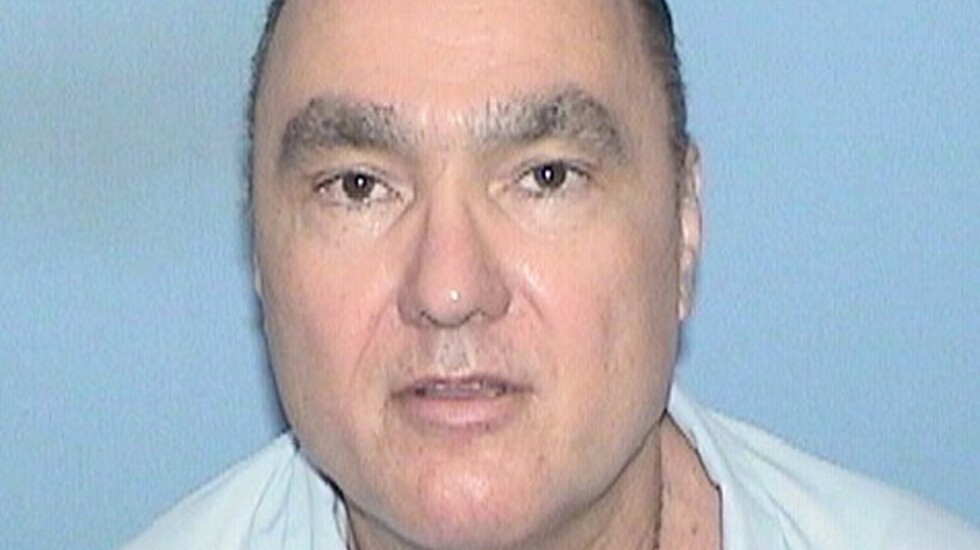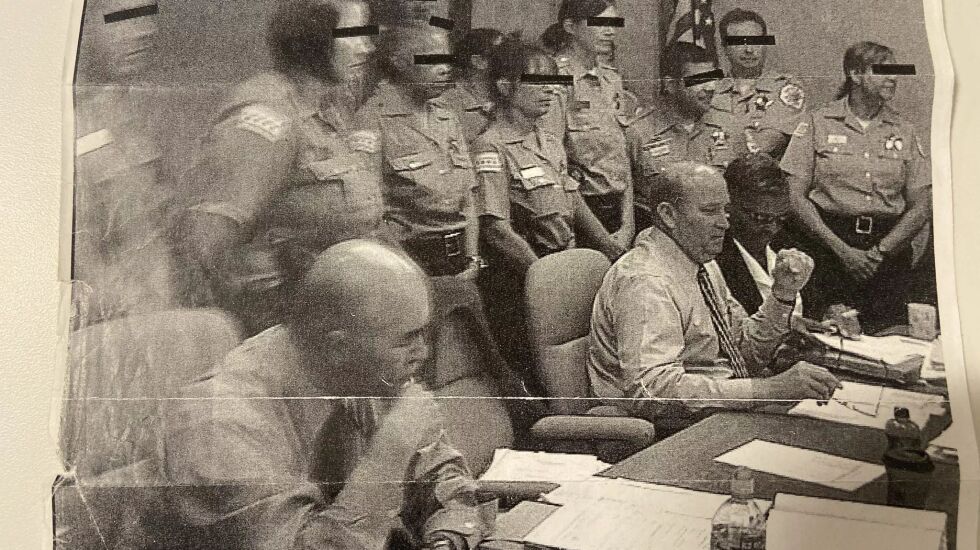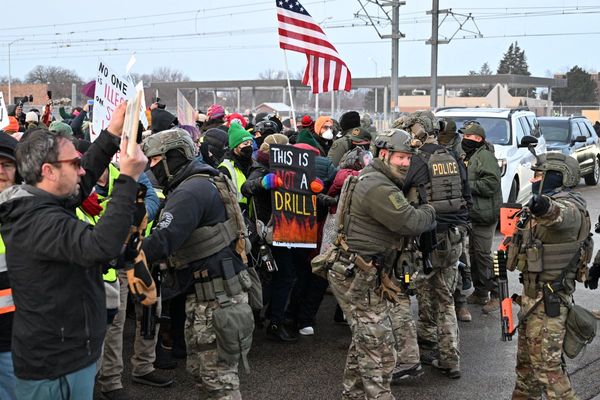
A man imprisoned since 1976 in the shooting death of a Chicago police officer could be freed this year after an appellate court panel set aside his 200-year sentence as excessive and ruled that his chances for parole were unfairly denied.
This decision comes after decades of failed appeals by Ronnie Carrasquillo, 65, who was 18 in 1976 when he fired into a gang-related melee and killed Officer Terrence Loftus, who was in plainclothes, trying to break up the fight.
In a 27-page opinion, an appellate court panel ruled that Carrasquillo should be resentenced based on changing legal precedents regarding how youthful offenders are treated and how mitigating factors, such as prison rehabilitation, are considered in sentencing.
It also found that Cook County Circuit Judge Alfredo Maldonado erred when he decided Carrasquillo’s original sentence of 200 to 600 years doesn’t amount to a life sentence solely because he has been eligible for parole for decades.
“Mr. Carrasquillo’s excessive sentence threatens to defeat the effectiveness of the parole system by keeping him incarcerated long after he has been effectively rehabilitated,” Appellate Justice Freddrenna M. Lyle said in the majority opinion, issued Aug. 18. “Although Mr. Carrasquillo has had the apparent opportunity for release, because of his sentence and the offense for which he was convicted, such opportunity will never be ‘meaningful’ despite his demonstrated maturity and rehabilitation.”
The court declined a request by Carrasquillo’s attorneys to reassign the case to a new judge for resentencing.
“The lawyers and Ronnie’s family remain hopeful that ultimately he will get a new sentencing hearing and that the new sentence will be time served, and he can finally go home,” said Charles Hoffman, an attorney with the Illinois Office of the State Appellate Defender.
Representatives of the Cook County state’s attorney’s office and the Illinois Prisoner Review Board wouldn’o comment.
After previously opposing parole for Carrasquillo, State’s Attorney Kim Foxx told the parole board she no longer opposed his release or that of another cop-killer, saying prosecutors aren’t in the best position to judge inmates’ fitness for parole after going to prison.
At the center of Carrasquillo’s recent appeals was the 2012 U.S. Supreme Court ruling Miller v. Alabama, which prohibits offenders 17 years old and younger from being sentenced to mandatory life without parole.
In 2019, the Illinois Supreme Court went a step further, ruling in the case People v. Buffer that a 40-year sentence was a de facto life sentence for a juvenile offender.
Carrasquillo turned 18 five months before the shooting, but the legal precedents have applied in other cases in which 18-year-old defendants have established their emotional development was equivalent to a 17-year-old at the time of the offense, according to the ruling.
At Carrasquillo’s evidentiary hearing in 2019, a forensic psychologist testified Carrasquillo fit that definition.
During the hearing, Maldonado also heard testimony from fellow prisoners, family members, politicians and one of the prosecutors who helped convict Carrasquillo — all who spoke of his rehabilitation, mentorship and stellar record in prison.
But Maldonado ruled against a new sentence for Carrasquillo because he had been eligible for parole for decades.
The two appellate justices in the majority wrote that the now-deceased trial judge was sending a clear message to the parole board.
“By entering an indeterminate sentence of 200 to 600 years, the sentencing judge was sending a message to the board that Mr. Carrasquillo should not be granted parole, even if he were eligible,” they wrote. “This is an edict that the board has evidently followed.”
The opinion pointed to the “more than 30 times” Carrasquillo was denied parole “despite the fact that the board recognized his extensive rehabilitative record.”
Most recently, he was denied parole in May by an 8-1 vote.
Law enforcement representatives — including Chicago police officers who at times have come by the busload to Carrasquillo’s parole hearings — have opposed his release.

Prosecutors said Carrasquillo aimed at Loftus as the out-of-uniform officer tried to break up a gang fight.
Carrasquillo has said he was aiming above the crowd to try to stop the melee.
Carrasquillo has been seeking parole since 1984 and came close to being released before. But the board denied parole on grounds it would “depreciate the seriousness of the offense.”
In prison, Carrasquillo got a bachelor’s degree in theology, helped steer younger prisoners to a better path and has kept an almost-spotless disciplinary record, said Michael Deutsch, one of his post-conviction attorneys.
Carrasquillo is being held at the Kewanee Life Skills Re-Entry Center. His projected release date is March 7, 2266.
Carrasquillo’s lawyers asked the appellate court Wednesday to order his release while he waits to see whether prosecutors appeal to the Illinois Supreme Court.
“I am hoping the court will rule on the motion by Monday,” Hoffman said. “It could go either way.”








